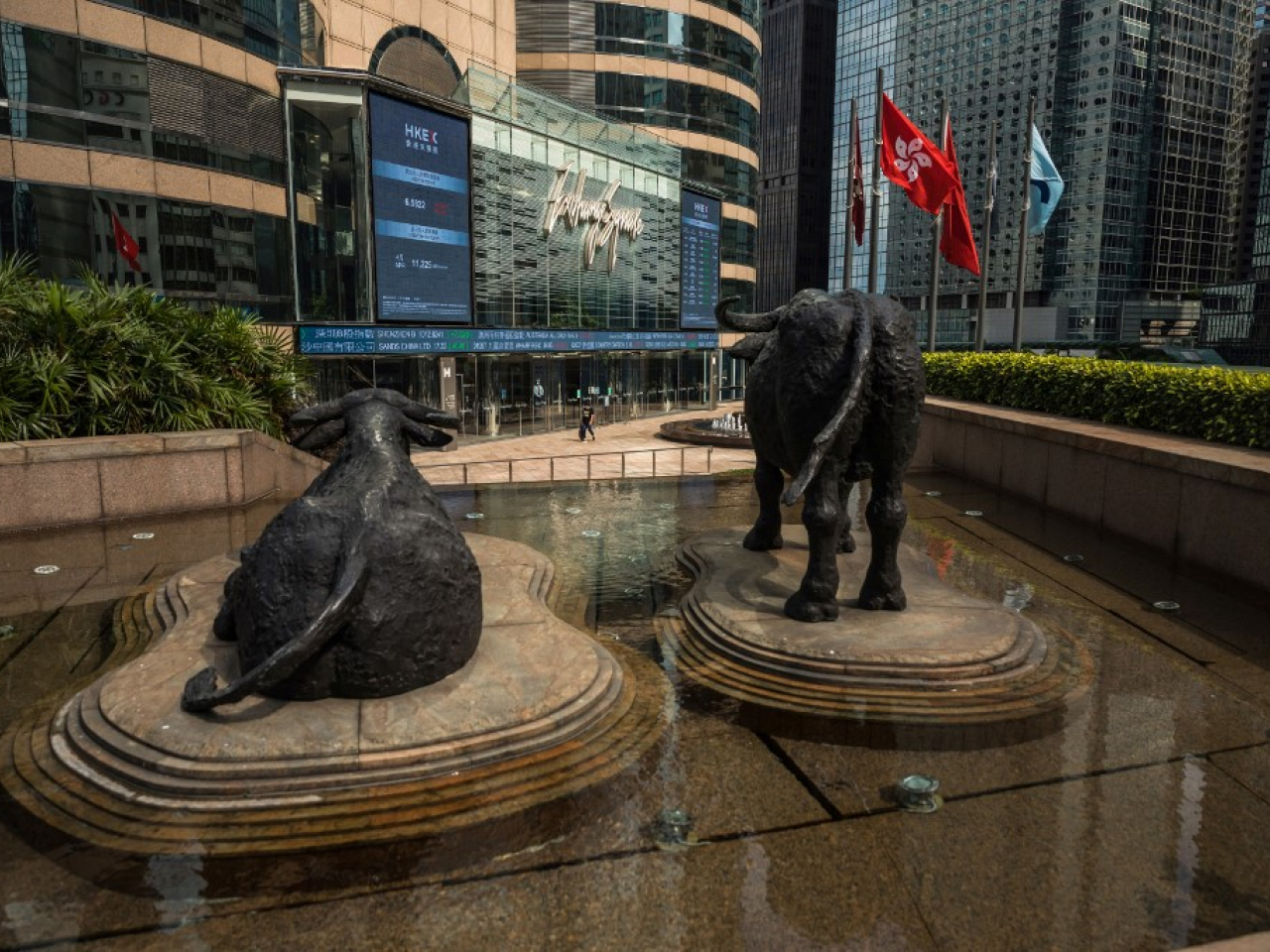Global shares slipped on Wednesday and gold pulled back sharply from a blistering rally, as stretched valuations came under scrutiny and investors booked profits.
In Hong Kong, the benchmark Hang Seng Index opened 129 points, or 0.5 percent, down at 25,897.
On the mainland, the Shanghai Composite Index edged 20 points, or 0.52 percent, down to 3,896 while the Shenzhen Component Index was 91 points, or 0.7 percent, down at 12,985.
Geopolitics loomed large in the retreat.
Ambiguity lingered over a potential meeting between President Xi Jinping and his US counterpart Donald Trump.
Despite Washington and Beijing striking a more conciliatory tone in recent times, Trump added to the uncertainty over the meeting on Tuesday, saying that "maybe it won't happen".
The overnight dive in gold was the main focus for markets, after prices of the yellow metal sank more than 5 percent on Tuesday despite no obvious catalyst. It last traded 0.6 percent lower at US$4,098 an ounce.
The precious metal has had a blockbuster run this year, climbing more than 50 percent as broader geopolitical and economic uncertainty, as well as expectations of US interest rate cuts, spurred demand for the safe-haven asset.
"Gold was massively stretched, massively overbought. There's been a lot of FOMO [fear of missing out] going into that market," said Tony Sycamore, a market analyst at IG.
"It's one of those situations whereby when positions become stretched – and you'd have to say that the Nasdaq is certainly in that boat as well, for some of these other frothy markets, we're seeing little flash crashes now...We're just seeing little tremors in markets, and potentially there's something more significant to come."
MSCI's broadest index of Asia-Pacific shares outside Japan was down 0.24 percent, while Nasdaq futures fell 0.2 percent and S&P 500 futures dipped 0.07 percent after a mixed cash session on Wall Street.
The 225-issue Nikkei Stock Average opened 64 points, or 0.13 percent, down at 49,252 in line with the broader market, though that followed two days of strong gains on expectations of greater fiscal stimulus under the country's new prime minister Sanae Takaichi.
"We expect 'Sanaenomics' to be broadly positive for the equities market," said Louis Chua, a research analyst at Julius Baer.
He expects further upside for the Nikkei, supported by the "twin tailwinds of corporate reform and a pro-growth reflationary path with Takaichi's election". (Reuters/Xinhua)





